Postdoctoral Fellowship Program
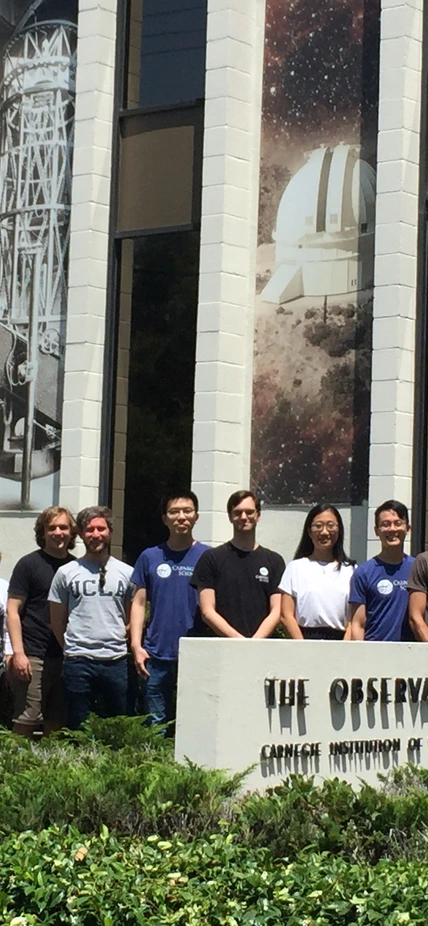
Best-in-class training
Carnegie Observatories operates several post-doctoral fellowship programs in observational and theoretical astronomy and instrumentation. Not all fellowships are offered every year: the Carnegie Fellowship, Carnegie Origins Fellowship, Carnegie Theoretical Astrophysics Center (CTAC) Fellowship, and Carnegie-Princeton Fellowship are available for a November 1 application deadline, for fellowships beginning the following fall.
All fellows are expected to pursue research topics of their choice. Fellows enjoy access to all of Carnegie’s observing facilities in Chile on the same basis as the scientific staff, including the two 6.5-meter Magellan telescopes, the 2.5-meter du Pont telescope, and the 1.0-meter Swope telescope, all at Las Campanas Observatory. In the recent past, Carnegie Fellows have generally received 3-5 nights of Magellan time per semester. Carnegie is also a full institutional member of the Sloan Digital Sky Survey IV and V. Scientific computing resources available include the Carnegie Memex cluster (https://hpc.carnegiescience.edu/) in addition to local computing resources. Based in Pasadena, between the Jet Propulsion Laboratory and the California Institute of Technology, the Observatories provides an exceptional research environment and access to resources for theorists, observers, and instrumentalists alike. Each fellowship provides ample support for travel, computing, and publications. A list of current and past fellows and their current positions is available here.
The Carnegie Institution strives to enable a scientifically excellent, equitable, and inclusive community, and therefore aims for diverse groups of people to collaborate and thrive at Carnegie.
If you are interested in having Carnegie host your Hubble, Jansky, NSF, or other fellowship, please contact Dr. Josh Simon. Externally funded fellows also have access to Carnegie’s observing and computing facilities described above.
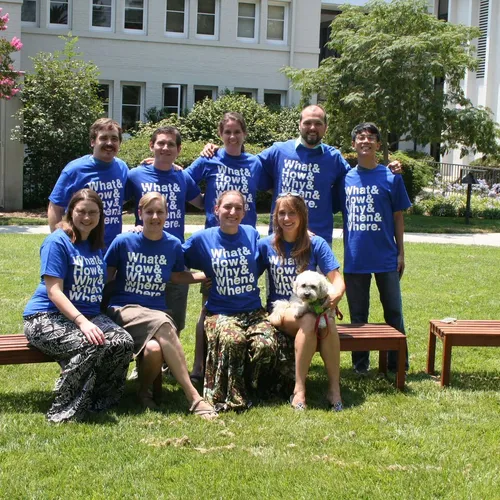
Carnegie Fellowship
The fellowship is intended to encourage long-term research in observational astrophysics and/or instrumentation. We are particularly interested in applicants who have received their Ph.D. degree within the past three years. Fellowships are awarded for two years and may be renewed for an additional third year. The successful applicant must have completed the Ph.D. requirements before assuming the fellowship.
Email Inquiries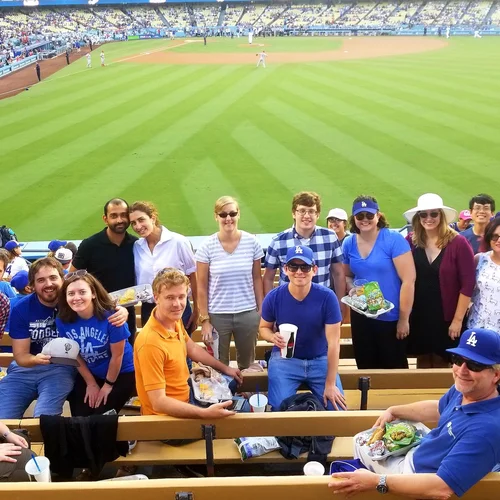
Carnegie Theoretical Astrophysics Center (CTAC) Fellowship
The CTAC fellowship is intended to encourage long-term research in theoretical astrophysics, particularly in areas related to star/galaxy/black hole formation and evolution, Milky Way dynamics and dark matter, transient explosive events, exoplanet formation and dynamics, and cosmology. Fellows are expected to carry out an independent program of research that complements and enhances both the theoretical and observational activities at Carnegie. CTAC Fellows have full access to Carnegie's computational resources--previous fellows have utilized 1-2 million CPU hours per year. The fellowship is awarded for two years and may be renewed for an additional third year. The successful applicant must have completed the Ph.D. requirements before assuming the fellowship.
Email inquiries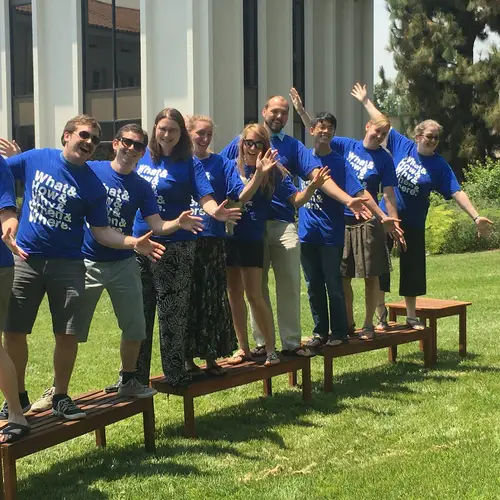
Caltech-Carnegie Brinson Fellowship in Observational Astronomy
This new joint fellowship provides a unique opportunity for candidates who will make excellent use of the observing facilities, survey data sets, and collaborators at both Carnegie and Caltech. Caltech is a partner in the Keck Observatory, Palomar Observatory, and Owens Valley Radio Observatory, as well as LIGO and several space missions. The successful applicant will have standard access to the facilities of both institutions throughout the term of the fellowship.
Email Inquiries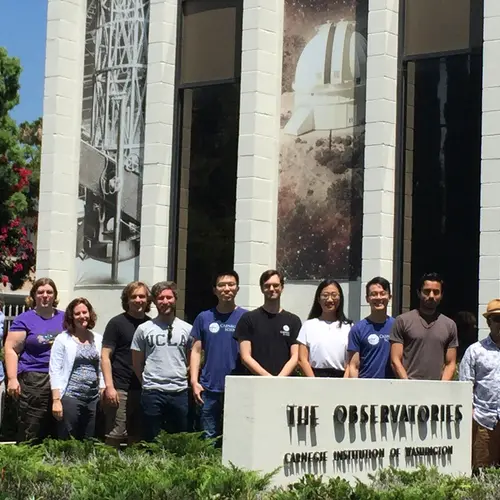
Carnegie-Caltech Theoretical Astrophysics Fellowship
This joint fellowship is intended for candidates whose research would benefit from the collaborators and resources available at both Carnegie and Caltech. The Fellow will split their time between the Carnegie Observatories in Pasadena, and Caltech's Cahill Center for Astronomy and Astrophysics. The Theory Fellow is expected to carry out original research in any area of astrophysics, either independently or in collaboration with staff, faculty or students at the host institutions. The principal selection criteria will be outstanding research accomplishments and promise of future achievement. Preference will be given to researchers working in areas in which Caltech and Carnegie have active and overlapping interests.
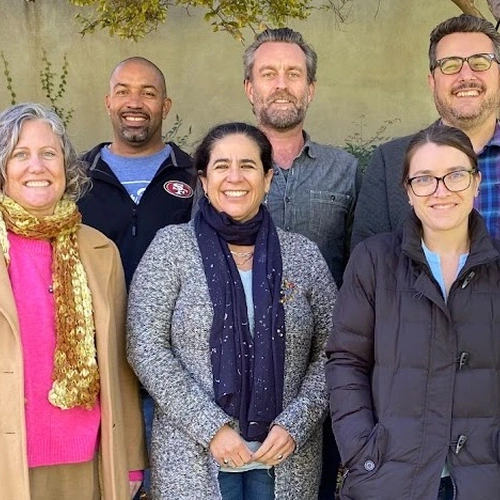
Brinson Prize Fellowship in Instrumentation (not offered in 2024)
Postdoctoral fellows in our renowned instrumentation program work with astronomers and engineers to create, design, and build world-leading telescopes and exceptional instrumentation. Instrumentation breakthroughs come from individuals who have both a background in astronomy and an interest in designing and building instruments. The Carnegie Observatories is particularly interested in candidates with this combination of skills and interests who have completed their Ph.D. within the past three years.
Email Inquiries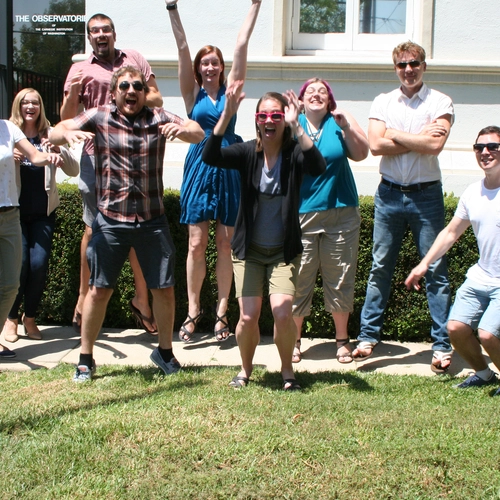
Carnegie-Princeton Fellowship (not offered in 2024)
This joint fellowship is intended for candidates whose research would benefit from the collaborators and resources available at both Carnegie and Princeton University. The Department of Astrophysical Sciences at Princeton is a major partner in the Atacama Cosmology Telescope, the Simons Observatory, and the Large Synoptic Survey Telescope. The department is collaborating with the Japanese astronomical community on large imaging and spectroscopic surveys with the Subaru Telescope, focused on extragalactic astronomy (the Hyper Suprime-Cam survey) and planetary systems around other stars (the Charis survey). In addition, Princeton is heavily involved in planning for the Prime Focus Spectrograph Survey. The successful applicant will have the right to join all these surveys. Together with research groups in other departments in the university and the nearby Institute for Advanced Study, the department offers an unparalleled environment for research in theoretical and observational astrophysics and cosmology.
Email InquiriesHow to Apply
Applications for all fellowships include a cover letter, curriculum vitae, bibliography, an essay describing the applicant's previous work and future research plans (up to 5 pages including references), and a one page broader impact statement articulating the applicant's past accomplishments and future plans in any of the following areas: contributions to diversity, equity, and inclusion, mentoring, service work, and outreach (see this link for more information).
Only a single application is required when applying for any of the above fellowships except for the Carnegie Caltech Theoretical Astrophysics Fellowship (see below), and the application may be submitted online using the link below. Please indicate the fellowships in which you are interested by selecting the appropriate checkboxes. Applicants who are uncertain whether observational or theoretical positions would be more appropriate for them are encouraged to contact cfellow@obs.carnegiescience.edu and/or ctacfellow@obs.carnegiescience.edu to discuss. Applicants must also provide the names and email addresses of three references, who will be emailed a link for electronic submission of their letters. Applications for all fellowships are due by October 30. Reference letters are due November 6.
Applicants for the Brinson fellowship do not need to submit a separate application to Caltech. In addition to the application materials described above for the Carnegie Fellowship, Brinson applicants may optionally provide a 1 page statement describing how their proposed research will be synergistic with Caltech and Carnegie facilities and/or astronomers. Alternatively, the cover letter and/or research statement may be used to clearly explain how the proposed work will capitalize on the unprecedented telescope access afforded by this position and enhance collaborative opportunities between the two institutions.
Applicants for the Carnegie Caltech Theoretical Astrophysics Fellowship must submit an application to both the Observatories and to Caltech via the "Apply Now" link below and by visiting https://academicjobsonline.org/ajo/jobs/25369 and abide by the application procedures/deadlines described therein.
In recognition of the impact that recent events may have on junior scholars from various parts of the world, we are allowing a grace period of three weeks for applicants who are affected by war or disaster. For such applicants, the updated application deadline will be Monday, November 20, with letters due by Monday, November 27. If you plan to submit your application during this grace period, please contact cfellow@obs.carnegiescience.edu and/or ctacfellow@carnegiescience.edu ahead of time so that our review committees can plan accordingly.